After a perfect storm of randomness, the team enthuse about Dice Forge, set hypotheticals for two-player games, and become one another’s Muse.

After a perfect storm of randomness, the team enthuse about Dice Forge, set hypotheticals for two-player games, and become one another’s Muse.
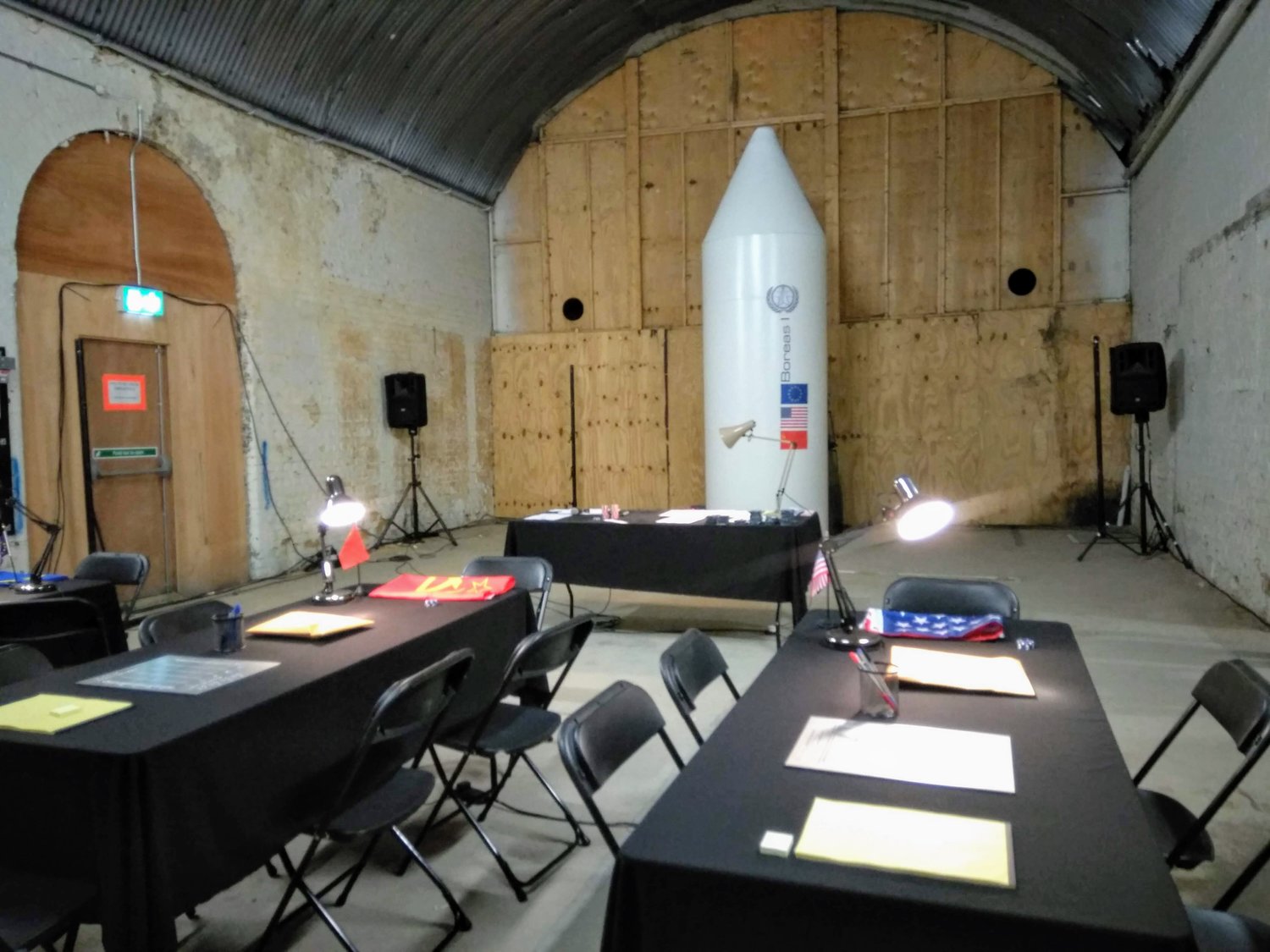

A game can be many things – a board on a table, a ball in a field, or even just a story. But can a game be anything? Last month I put that to the test when I acted as a moderator for the “immersive game” (or megagame, if you prefer) Bring Them Home. For the uninitiated, Bring Them Home sees three teams representing foreign space agencies work together to bring back a stranded astronaut following a disaster in deep space. It’s silly and brilliant, but how can we categorise it in gaming?
The Treehouse invited the producers to host Bring Them Home with us back in September, and I got some experience running the game then, but after two weeks of back-to-back shows I think I understand something new about the possibilities of game design. Never one to shy from a challenge, I thought I’d have a go at answering the above question. Wish me luck!
Let’s start with the basics. Bring Them Home certainly features components, strategy, social deduction, a clear objective and multiple paths to victory. Its influences are without question rooted in gaming. However, it may not be that simple. For one thing, it’s very difficult to play the game more than once, as many of the game’s secrets and revelations fall flat if you’ve known them all along. For another, it requires a full team of moderators to keep things running smoothly – six in this last run, for just twenty-one players. Those moderators inevitably have an impact on the game, even as they remain nominally neutral. You might consider that evidence enough that it isn’t a board game. So perhaps it’s a roleplaying game instead?
There’s some evidence for that too. Between games my fellow moderators and I had a lot of animated discussions about how the game could be tweaked, what had worked or not worked in the previous game, and what we could learn from it. That flexibility matches what GMs in roleplaying games experience, changing their plans on a dime. Sometimes we would enact changes that seemed drastic (like omitting entire sections of the game) in the half-hour “reset” portion between runs. Other times the players would bring their own surprises (like the game where six more people than we expected showed up!), and we had to think up solutions on the fly. In a typical board game, none of that would happen. The boundaries are set from the very beginning (that’s why the first thing you do is read the rulebook), and can’t just be fudged to make things go differently. In roleplaying games this is slightly more common, but the practice of a GM lying about their die rolls remains controversial. In short, the game isn’t fair, and we know it.
But so what? It seems to me that if you’re inclined to attend a theatrical gaming experience like Bring Them Home, you’re going to know that it’s not a typical board game anyway. The X-factor that I’ve always admired in gaming is creative thought within restricted space – the joy of taking a system and exploring all its possibilities. And thanks to the presence of the moderators, and the knowledge that this will be our players’ only shot to interact in this specific way, those possibilities appear boundless. I’ll let you in on a secret – behind the set design and hosting patter, the mechanics of Bring Them Home are very, very simple. It just so happens that because all your actions go through the mods, and because the mods are trained to “yes-and” pretty much every action you can take, you don’t need to know where all the boundaries are.
Do you want to try and bribe the press? You can do that! Do you want to use distraction tactics on the other teams? You can do that! Do you want to use the moderators to lie, sending them up to the main desk pretending to do an action while actually doing something else? You absolutely can do that. And it isn’t just limited to sneakiness either. One player brought in a box of Maltesers hoping to make friends with everyone around the room, and to make himself stand out in case that was important. As it turned out, it was absolutely vital, and his Malteser-based antics won his team the game. You won’t be surprised to learn that the (very sparse) game rules don’t include the word “Malteser” once. That was his stroke of genius, and it paid off.
Bring Them Home isn’t a board game, or a roleplaying game, or a theatre show. It’s something new, but it isn’t an island. Escape rooms touch on many of these ideas too, though the solutions to puzzles tend to be more linear. And live roleplaying games are really picking up steam, combining improv theatre with a common rules structure to tell long-form stories. On the more hardcore end, LARP is finally having its day in the sun with national projects like Empire attracting record attendance. The intersection of theatre and gaming is arguably as old as the televised game show, but the recent renaissance looks to be opening up new possibilities on all fronts. Just watch how far it can go.
by Patrick Lickman

After a trip to King’s Crossing, the team brew up a potion of excitement for Quacks of Quedlinburg, relate their favourite moments in narrative gaming, and then get as evangelical as they ever have about a game that isn’t even in the game library.
The Treehouse
Quacks of Quedlinburg on BoardGameGeek
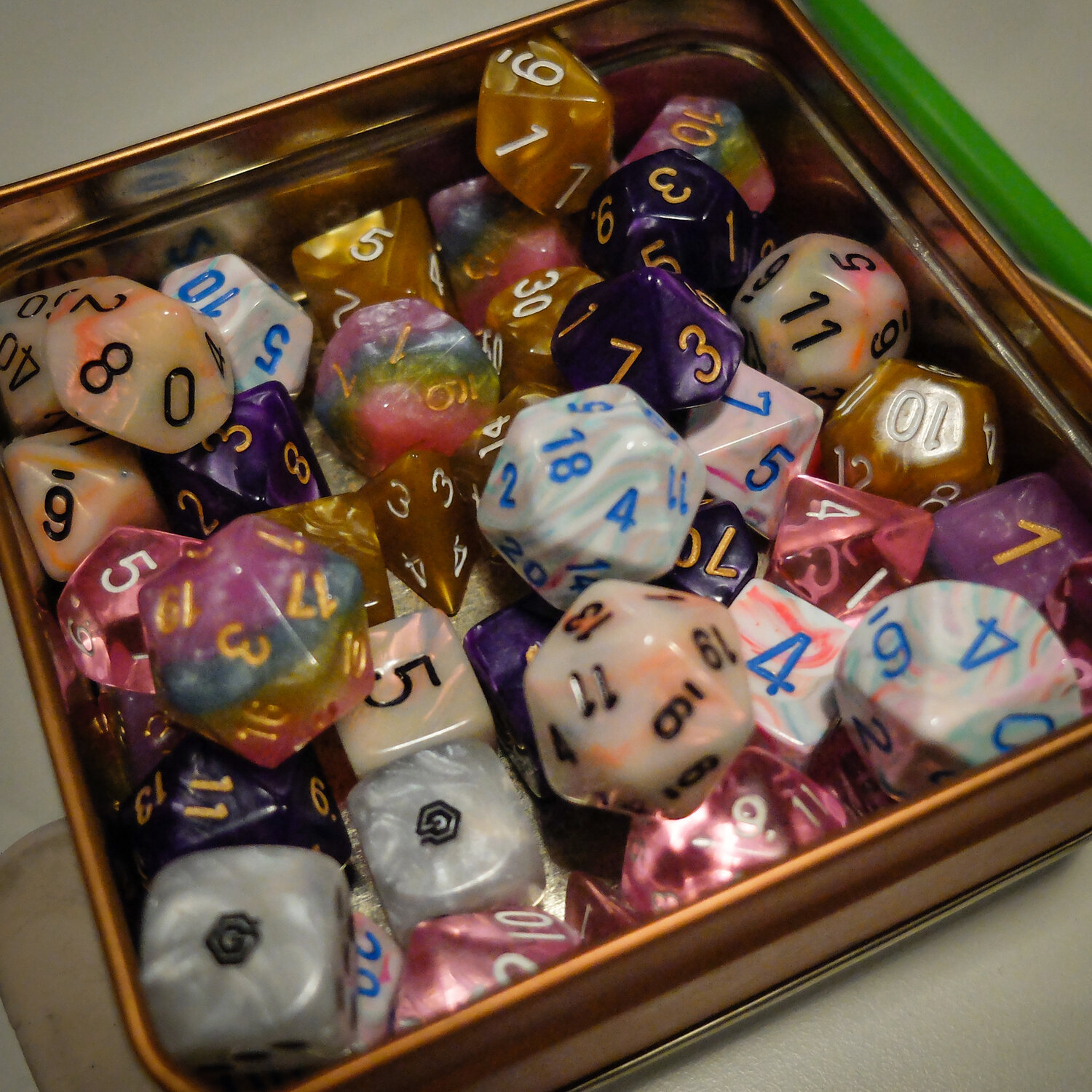

This is Jenny, one of our crack team of Games Masters, who’s been running roleplaying events for customers at Treehouse for more than two years now. Starting on February 27th, Jenny will be running a new six-session roleplaying season: Ms Havelock’s School for Girls, based in the Call of Cthulu system.
We caught up with Jenny to talk about why roleplaying is awesome, to explore her decision to make the season for self-identifying women and non-binary players only, and find out what players can expect from Ms Havelock.
How did you get started in roleplaying?
“I started the same way most people do: with one very enthusiastic friend begging us all to give it a go! A more distressing number of years ago than I like to think about, a good friend in our board-gaming group convinced us all to join in with something he had written. It was Dungeons and Dragons 4th edition, and I had absolutely no clue what was going on. I just turned up, drank mead and hit things when I got told to. One particular member of the group insisted I was doing things wrong, and I stepped away from it for sometime after having my confidence knocked back significantly.
Luckily, that very enthusiastic friend became a very enthusiastic partner and it was harder to get away from his campaign planning. After several years of thinking I didn’t enjoy roleplaying and it was something I just would never get in to he convinced me to try it again with a smaller group and an updated edition; I had a completely different experience. Everyone around the table had a brilliant time, and though we never finished the campaign it opened whole new horizons for something I thought I would never be able to enjoy. “
Why do you love it?
“Getting to mess about with lovely people, do silly voices and build a story together? What’s not to love?!
I’ve always loved stories. I’ve been an obsessive reader since I was little, and roleplaying games are basically just stories that you get a say in. Being able to bond with people over telling the same story is a really wonderful experience. The Game Master may be the one who is in charge, but everyone around the table can affect the world and is working to tell the same story, just coming from different angles. If I’m running a game, I love watching the group figure out what each other is about, getting to know the world we are in and being able to build up an adventure that feels right. I may plan out a whole campaign, but the party could choose to follow a completely different thread that they find interesting. There aren’t many feelings which match the adrenaline from having to fly by the seat of your pants, it’s almost better than having everything play out just as you planned.
Unlike board games or video games where you have specific options you have to take, roleplaying games allow complete freedom of choice for your reaction, and everyone will tackle things differently. If I’m writing a big nasty wolf attacking a village, my players might choose to fight it outright, or they might cast a spell and talk to it, or they might do something I would never have thought of.
Everyone gets something different from roleplaying. For me, it has massively built my confidence and helped me work through social anxiety, and it’s much more exciting than sitting at a desk and writing a book all by yourself.”
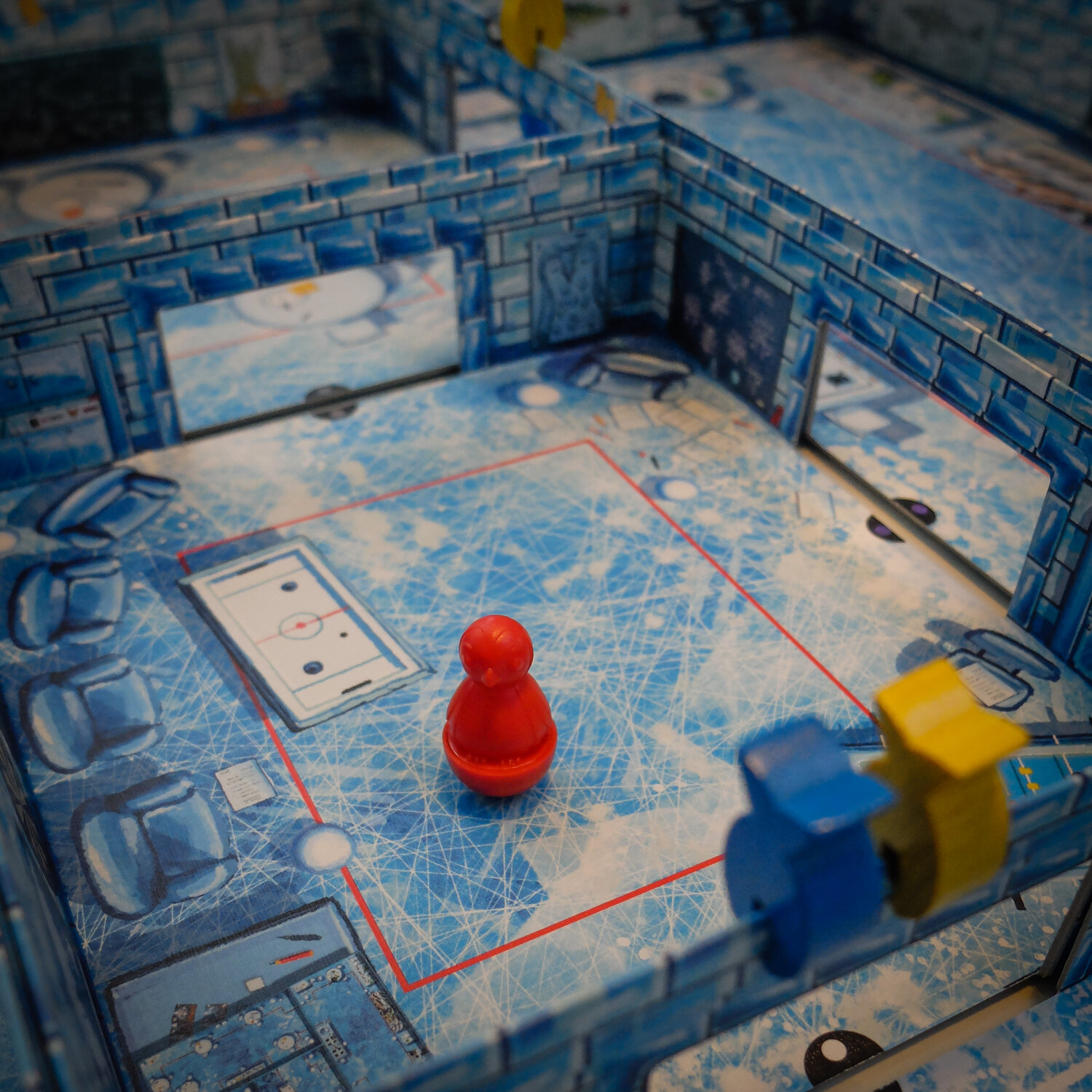

Hello everybody, welcome back to the Treehouse blog!
We hope you’re all keeping safe and well and finding ways to manage in this era in which being asked to believe six previously impossible things before breakfast is actually a little below average.
As you’re probably aware, The Treehouse is currently closed for business until further notice due to the Coronavirus outbreak. It’s a funny old time to be a small business, but we’ve seen some absolutely incredible support over the last few days, and team Treehouse is currently doing OK.
We are aware that the next few weeks are going to be tough for a lot of people, with isolation, anxiety and loneliness becoming central issues. But, for those of us lucky enough to be faced with the question ‘what the heck am I going to do with my time?’ they are also an unprecedented opportunity. Having fun, trying new things and building social connections will all be completely possible over the next few weeks with the right tools, and we believe that games of all kinds are some of the most powerful tools around. We are in the fortunate position of having some expertise in this area, and it’s our aim to put that to good use even while The Treehouse is closed as a venue.
We’ve already been getting messages from people looking for suggestions on how to overcome the various barriers stopping people from playing together at the moment. Over the next few days and weeks we’re going to be considering some of these in more detail and sharing our thoughts and advice.
Because we’re massive nerds, we thought we’d kick things off with a flow chart to give some high-level pointers and show where we think we can help. If you think there are topics you’d like to hear from us about that aren’t covered on here, please get in touch – we would love to hear from you!
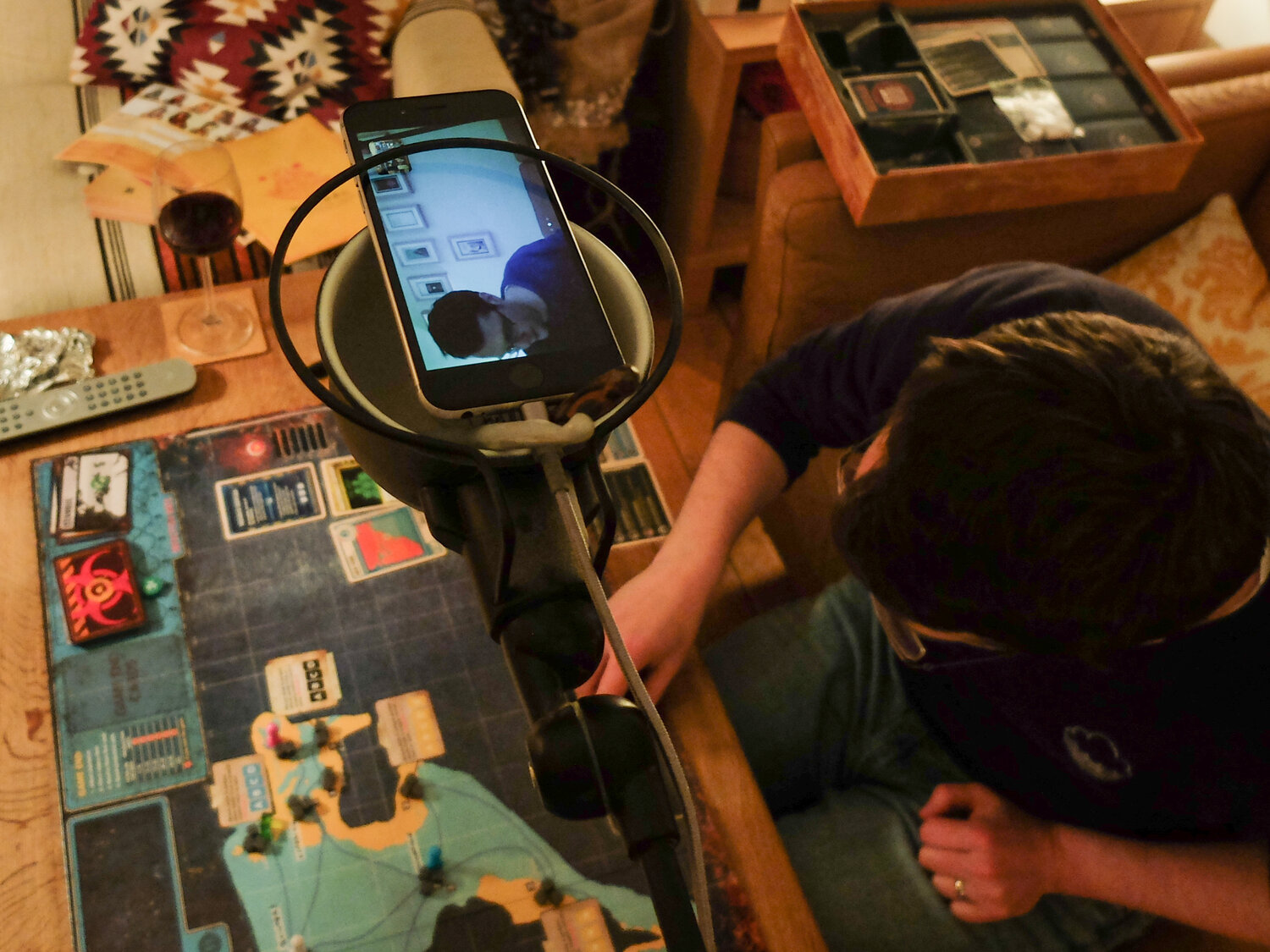

Greetings fellow Quarantinees*,
*noun, plural: people confined to the indoors to prevent the spread of a virus; not to be confused with Quarantinis: strong, alcoholic drinks consumed by said people)
This week Team Treehouse have been experimenting with playing board games using Zoom as a fun way to (virtually) spend time with friends and family in other locations as we all get used to our new state-of-indoors. Here are the findings of our research…
What is Zoom?
Zoom is essentially a video conferencing platform which you can sign up to and use for free, with a few limitations which I’ll come to in a moment. The sort of set-up I’m about to describe would probably be perfectly possible via Skype and no doubt other services, but there seems to be a consensus that Zoom is the most slickest and most flexible option available at the moment. I’ve certainly be impressed with it in our experiments so far.
The basic gist of a gaming session via Zoom is that someone sets up a physical board game wherever they are, then sets up one or more devices (probably laptops, smartphones or tablets) with a camera and microphone so that people in other locations can see the board and the components they need to join in with game. Participants get a split-screen view of feeds from the cameras linked into the ‘meeting’ so they can see the other players as well as what’s going on in the game, and there’s an incorporated audio feed so you can all chat while you play.
Technical stuff
One limitation of the free subscription to Zoom is that meetings involving more than two participants (in this case devices in different locations rather than actual people) are limited to 40 minutes, although ‘one-to-one’ meetings are unlimited. We got freebies on our first two meetings allowing us to go on indefinitely, but I don’t know if this is the norm or how long it will last. Upgrading to a paid subscription costs £12 per month, which is a fairly hefty chunk, but the cost could be split with other people in your gaming group since only the meeting’s host needs the premium version in order to lift the restriction.
You can, in theory, add extra devices in one location without needing multiple subscriptions, which would be handy for showing both the board, players and components. We had trouble making this work using phones and ended up signing in with multiple accounts to create the same effect, but it looks much more straightforward if you have a separate webcam. Each time you add a new device in your location the first thing you’ll want to do is turn off the microphone and mute the volume to prevent horrible feedback effects.
Before your gaming session, you’ll need to ask the other players to create a Zoom account and install the programme/ app. You all then need to tell the host the email address you used to set up your account so they can invite you to the meeting. You’ll then get an email and a notification within the app with a link you can click on to join.
If you’re in the location with the physical game, you’ll want to have a think about what the other players will need to be able to see on order to play and how you can set this up. We made use of an Anglepoise-style lamp to suspend a phone over the board, but you’ll need to get creative here with whatever is available where you are! It can take a little while to get it right so you might want to have a play around before you start the meeting.
Our Zoom experiments so far
Our first foray into gaming via Zoom was playing the introductory game of Pandemic Legacy Season 2 (preparing for the post-apocalypse!) with three people, two in the same room as the game and one elsewhere.

The Treehouse Podcast returns with a Shutdown Special, full of ideas for how to keep on gaming during a quarantine.
After an update on the general state of play at The Treehouse during the Coronavirus lockdown, we discuss ways to play games online with people in other places, and shine the spotlight on Jackbox games as a way to have a virtual party, before wrapping up with some announcements on what’s coming up over the next few weeks.
If you enjoyed this episode and would like to help support The Treehouse while we’re closed, you can make a small contribution here.
Links from the episode:
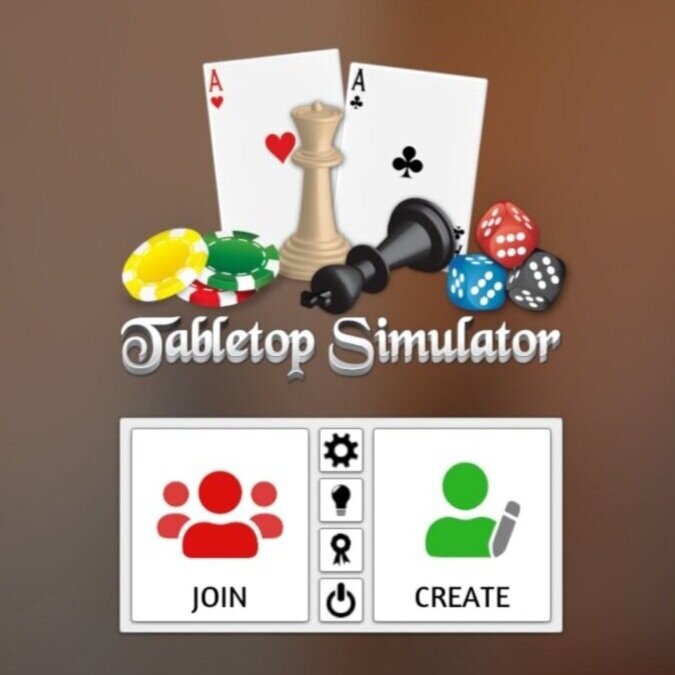

How about as a social experience?
Here we come to a few ways TTS differs from a real table experience. The lack of visible social cues can, if you’re not already a close-knit group, lead to people talking over one another, as you have no way of telling when someone’s about to speak.
You’ll also need a separate piece of software to talk to your fellow gamers. I highly recommend Discord as it’s straightforward to use and is available on PC, Android & iOS. If you already use Skype, Messenger or something else then you can also continue to use that.
I’ve used TTS to socialise. I’ve met new friends and used it to connect with old ones. Whilst TTS will never replace a “real” tabletop experience, it’s something different, not less. I think I’ll end up continuing to use it after all this is over as a way to play games from my own home with players I can’t normally get together with. It’s honestly better than I ever expected.
Who would you recommend it for?
Really, almost anyone who is comfortable using a computer or is happy to learn. it’s quick and easy to learn if you have any level of competency using a PC and a breeze for anyone who would call themselves a “gamer”. I found my way around it in a few minutes and the community is always willing to offer any help or assistance you might need.
Find out more about Tabletop Simulator here.
If you’ve enjoyed this content, you can show your appreciation with a small contribution here, which would be a big help to The Treehouse in this time of limited cash flow.
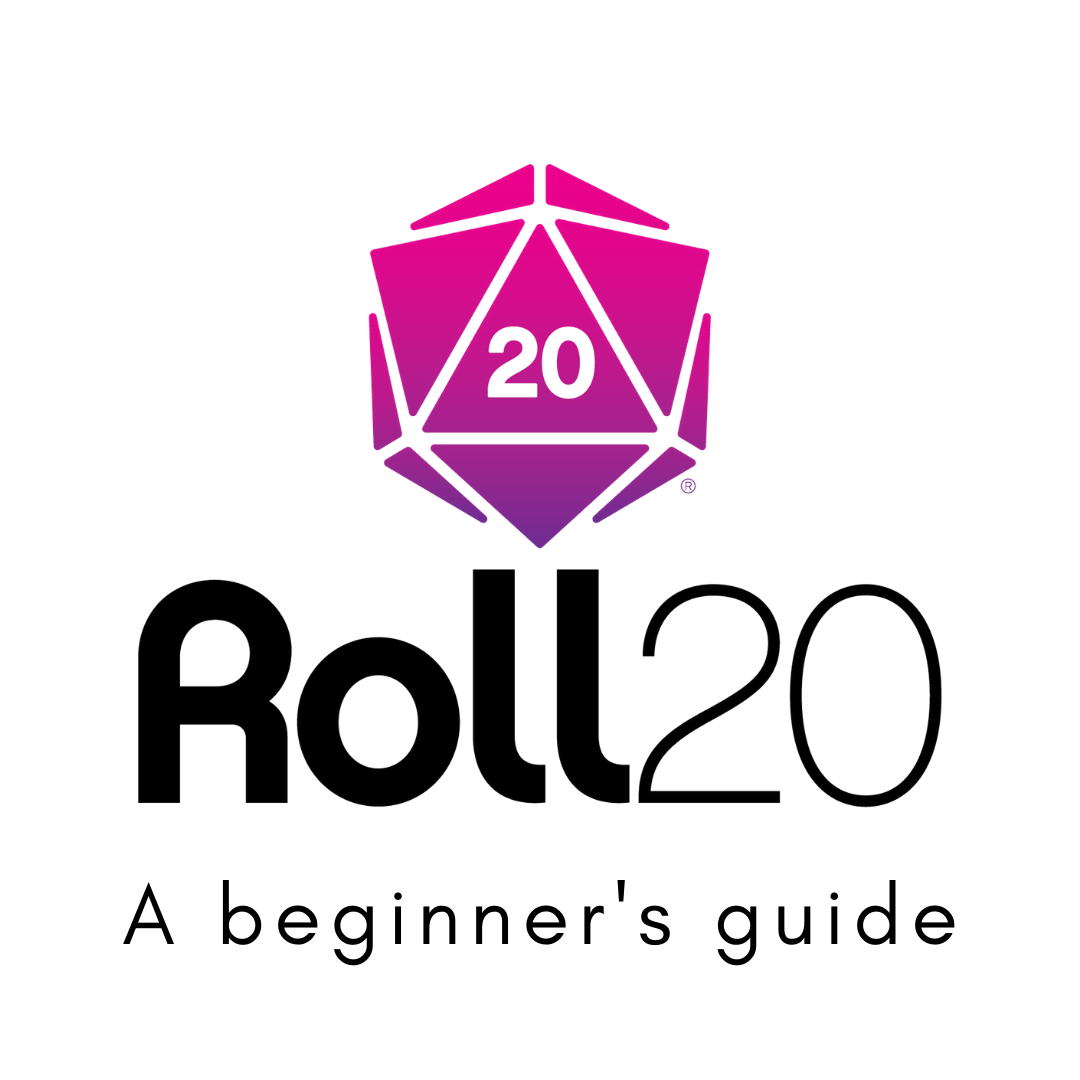

Attention roleplayers, experienced and aspiring! If you’re currently craving adventure but are unable to get together with a group, expert Treehouse Dungeon Master Henry is here to help, with some advice on how to get started with online roleplaying platform Roll20…
Are you currently at an exciting moment in a tabletop roleplaying game, but unable to meet up with your group anytime in the near future? Or maybe you’ve suddenly found yourself with a lot of spare time and have always been intrigued by the idea of doing some pen and paper roleplaying with friends? Well, luckily for you, a while back some nerds decided to go and invent the internet, which has been further built upon (presumably lots more nerds were involved) until we’re at the point where roleplaying is now something that you can do from the comfort of your own home, without the need to meet people IRL!
In my roundabout way, I’m coming to the point that I’ve been exploring Roll20, an online resource for hosting or joining roleplaying sessions. If your newsfeed is anything like mine then recently you’ll been inundated with suggestions and lists of ways to take your roleplaying game online. There seem to be many options, and while I do advise doing some research to find which one best suits your needs, I am here to relate what Roll20 was like for a first-time user, and give some advice on things that may not seem obvious from the outset.


Welcome back to our blog!
The Treehouse is now open again following four months of COVID-19 lockdown, but despite being back at work our crack team of games gurus are still not able to flex their ‘gamesplaining’ muscles on shift, as we’ve had to temporarily suspend our teaching service for social distancing reasons.
Not to be deterred, some of our team have put together the first in what will hopefully become a series of ‘quick teach’ videos on some of the games they’re excited about at the moment. Did we mention they also have some pretty mad video editing skills? What a clever lot.